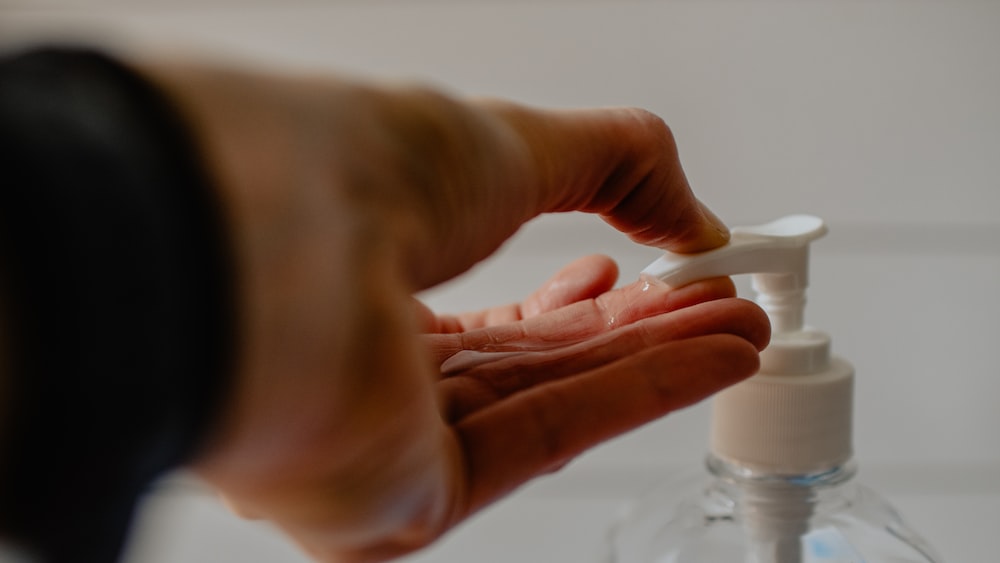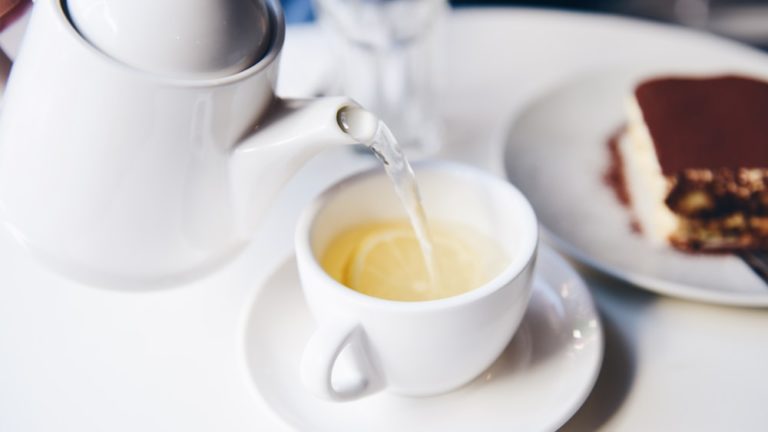Tea Tree Oil: The Ultimate Guide To Benefits And Uses

Tea Tree Oil: The Ultimate Guide To Benefits And Uses
Can you imagine arriving at a party, the lights are dim, and the music is good. Suddenly, someone walks in, catching everyone’s attention. This person is not particularly tall or fair, but there’s a distinct aura around them. This person, my tea-loving friends, is Tea Tree Oil – the unsung hero of the essential oil world.
Some might say, oh it’s just another essential oil. Still, like that transcendent party guest, it’s the depth and versatility of Tea Tree Oil that sets it apart. Tea Tree Oil (tto) dances its way into skincare products, household cleaners, and even health therapies. Intrigued? Well, you should be. Let’s dive deep!
What is Tea Tree Oil?
Hold up! Before we get lost in the tea fields, let’s understand what Tea Tree Oil is. Tea Tree Oil is a volatile essential oil derived from the Australian native plant Melaleuca Alternifolia. But brace yourselves, this is not your regular brew!
Origin and Extraction
Would you believe if I told you that the potion in your tiny bottle of tto has a history as rich and exciting as an Indiana Jones’ adventure? Hailing from the land Down Under, our showstopper- the Tea tree, has enjoyed celebrity status among Aboriginal tribes for centuries. Its leaves were used for healing skin wounds and infections, thanks to the oil.
How do you ask? Picture this. Picture men bravely battling dangerous conditions to collect these precious leaves. These leaves then go through a Steam Distillation process, which is essentially a Spa session for them; they’re steamed to infuse water with their oil. After an intense steamy session, our hero – the Tea Tree Oil, is separated and collected, ready to bless the world with its magic!
The Tea tree, known for its healing properties, has a rich history and is collected through a steam distillation process before being used for its magical benefits.
Chemical Composition
But what exactly in the Tea Tree Oil gives it the magical properties? Brace yourselves, we’re getting geeky here. Tea Tree Oil is a cocktail of over 100 components! Yep, you read it right. Let’s take a look at the top 2 bad boys responsible for giving this oil it’s kick:
- Terpinen-4-ol: This one is the good guy, responsible for bestowing those antimicrobial characteristics.
- 1,8-cineole: More commonly known as Eucalyptol (sounds familiar?), it often plays the bully, responsible for some of the skin irritations caused.
Proven Benefits of Tea Tree Oil
Are all the buzz and the spotlight justified? Let’s put our detective hats on and find out. Unsurprisingly, the benefits of Tea Tree Oil are as versatile as a Swiss army knife.
Antibacterial Properties
This is where Tea Tree Oil comes into its own; like Batman, tackling the insidious bacterias prowling in the darkness. Terpinen-4-ol, our good guy, goes after those bacteria in quite an audacious way. It penetrates the bacterial cell wall, disrupts the cell, and voila! The bacterias are shown the door.
And just when the bacteria think they could escape if they evade our hero – here comes more bad news! TTO is a broad-spectrum antibacterial, which means it is not picky. It shows all types of bacterias the exit door, be it gram-positive, gram-negative, or your regular thugs causing skin infections.
Anti-inflammatory Effects
On one bleak day, your skin cells decide to go rogue – inflammation strikes! Who are you gonna call to calm down the rebellion? Well, you’ve guessed it right – it’s Tea Tree Oil!
Studies show that our star ingredient can significantly reduce the inflammation by suppressing histamine response. Imagine a muscular bouncer showing the inflammations the exit. That bouncer, my friends, is TTO!
Antifungal Benefits
Let’s lay down the facts straight – Fungi are sneaky intruders. They quietly invade your skin, nail, or scalp and throw a havoc party. But fret not! Tea tree oil to the rescue again.
Hints of teatree oil’s antifungal prowess come from stories of Aussie soldiers in World War II, using the oil to treat tropical infections. Today, several studies recognize the oil’s potential to break down fungal cell walls, making it an effective treatment against yeasts and fungi!
Antiviral Properties
In the world brimming with viruses, Tea Tree Oil emerges as a gladiator in our constant fight against these harmful microorganisms. In the event of a viral infection, the oil can obstruct the virus penetration into the host cell.
On top of these, recent studies have thrown light on TTO’s effectiveness against Herpes Simplex virus, making it an alternative partial treatment for cold sores. Hey, we told you our star is versatile.
Everyday Uses of Tea Tree Oil
From being a wellness superhero to shining in your daily routine, Tea Tree Oil deserves a standing ovation!
Hand Sanitizer
Think of those moments; you’re outside, no water, no soap, and you need clean hands. These are the moments when a hand sanitizer comes to rescue, much like a white knight. And when we add Tea Tree Oil, we’re adding a turbocharger to that white knight!
A study found that Tea Tree Oil-based hand sanitizers could kill several common bacteria and viruses. Making your very own concoction is easy; mix a few drops of tto with aloe vera gel, and you have a potent hand sanitizer ready to protect you.

Insect Repellent
Every outdoor lover knows the problem of those insidious bugs and mosquitos. Well, guess what, Tea Tree Oil can lend a helping hand here too.
A small study showed the oil could repel mosquitos better than some commercially available products, and anecdotally, many folks swear by its bug-repelling properties. Now, isn’t that some food (or rather drink) for thought for our next outdoor adventure?
Tea Tree Oil can be a natural and effective way to repel mosquitos and bugs, making it a great addition to your outdoor adventure kit.
Insect Repellent
Ever swatted a mosquito and thought, “Why me?” It turns out; you’re not alone in your predicament; even our friendly plant Melaleuca Alternifolia – the Tea Tree – is a nemesis of many insects.
In a world where insects are downsizing their habitat preferences and opting for more homely environments (read: your house), tea tree oil pitches in as a hero. Not just our caped crusader, but also a savior to sailors for centuries who used it as a handy insect deterrent. But how so?
Boffins attribute this to some of the compounds found in the oil that proves bothersome to many insects. So, as the bugs prepare for a rampant weekend in your garden, surprise them with a tea tree oil spray. It might just make them pack up their party hats and reconsider their venue.
Natural Deodorant
Ever heard of a plant playing the role of a deodorant – sounds absurd, right? But folks, that’s the reality of tea tree oil. It’s more than your standard plant; it’s a comedian who moonlights as a deodorant.
Imagine being a sweat particle lurking under your arm, preparing to unleash its terror. It trembles like a leaf – or in this case, let’s say a tea tree leaf – before the natural anti-microbial properties of tea tree oil. It’s like being a ill-prepared gladiator pitted against a roaring lion in the arena.
On a serious note, using a diluted form of this oil gives you protection from body odor without troubling your skin. A quick dab, and you’re saved from being the center of those “Eww, what’s that smell” jokes!
Antiseptic for Minor Cuts and Scrapes
Remember your school days – scrapes, cuts, and all? Nothing an application of good old turmeric couldn’t fix. As it turns out, Melaleuca Alternifolia’s oil could perform the same magic without leaving behind a yellow stain.
How as magical as that? Effective antiseptic properties found in tea tree oil gear up at the slightest hint of a minor cut or scrape. They launch themselves at the wound, acting as a powerful force field against invisible invaders.
Acne Treatment
Acne – a six-lettered word that could send shivers down the spine of even the bravest souls. As a tea tree, one might be forgiven for flagging a white leaf at the sight of this dreaded enemy. But our Melaleuca isn’t any ordinary tree.
Every cell, every compound in this oil, voices one motto: “We won’t let you turn into a red-spotted dalmatian”. The anti-inflammatory and antibacterial properties work hard, helping to reduce those pimple outbursts and gift you clear, glowing skin.
So, next time acne threatens to ruin your day or that important meeting or date, just point them to the nearest bottle of tea tree oil. Let our little hero deal with them!
Nail Fungus Remedy
Nails – those hammered-in protections for our soft and sensitive fingers. Aren’t they heroes? They even fight off nasty nail fungi with a little help from their old friend – tea tree oil.
Yes, this oil can be your hitherto secret weapon against nail fungus. Except that it’s no longer a secret. The armed troops – otherwise known as terpinen-4-ol – utilize their antifungal qualities to wage a war against stubborn nail fungus.
Who will emerge victorious? Well, you know the answer!
Tea tree oil, with its powerful antifungal properties, can be your secret weapon in the battle against nail fungus.
All-Purpose Cleaner
Cleaning – not exactly the most exciting chore, is it? But tea tree oil adds a dash of drama and intrigue to this otherwise mundane task. You’ve heard of all-in-one actors, but this oil goes a step ahead, becoming an all-purpose cleaner.
Let’s imagine your kitchen top as the stage where all the bacteria have gathered for a grand performance. Enter tea tree oil, and watch as the bacteria scurry off the stage! The oil’s bacteria-fighting power makes it the ideal choice to keep your spaces squeaky clean.
Dandruff Control
Dandruff is like that uninvited guest that always gatecrashes your party. It not only leaves flaky souvenirs on your clothes but also disrupts the harmony of your beautiful hair. But here’s the hilarious part: as irritating as they are, they are ridiculously scared of a plant! Yes, it’s our protagonist again – Melaleuca Alternifolia.
When applied to the scalp, this magic oil creates an atmosphere that’s as hospitable for dandruff as the Sahara Desert for a polar bear. The antifungal properties discourage the overgrowth of the pesky yeast responsible for all those white flakes. So empower your hair to acclaim: “Dandruff shall not pass”!
Athlete’s Foot Treatment
How terrifying can fungi be? Ask athletes! They engage with it more frequently than they would like, thanks to the dreaded athlete’s foot. But guess who comes to the rescue again? Yep, you’ve got it – Tea tree oil.
Who needs strong, synthetic antifungal when we have the power of nature at our disposal? This oil launches a comprehensive attack on the fungus, making it as unwelcome as a diet plan at a dessert convention.
Psoriasis Relief
Psoriasis – another showstopper in our lives. Characterized by angry red, flaky patches all over the skin, it can be as off-putting as finding a hair in your pasta. But what if we told you that Melaleuca Alternifolia has got your back.
Tea tree oil exhibits a remarkable ability to soothe inflammation, minimizing the intensity of psoriasis outbreaks. It’s like providing a waterfall in the desert; relief where it’s least expected.
Clinical Efficacy and Safety of Tea Tree Oil
Tea tree oil: a class comedian who can moonlight as serious clinical study subject. Packed with potential benefits, it is backed by some impressive science. The duality of its function is as fascinating as its origin – A magical tree studied by experts who derive its essence.
Clinical Studies Supporting Efficacy
Class clown to class scientist – our Melaleuca Alternifolia tree’s oil hasn’t just been juggling roles but also people’s perceptions. Is it a potion made of leaves or a scientifically backed cure?
Clinical studies throw weight behind the latter, proving tea tree oil as therapeutic magic. From being effective against acne and psoriasis to fending off fungi, it has strutted down the scientific runway and wooed the experts. The reality of this oil: No longer merely old sailor’s tales but scientific facts.
Tea tree oil has transformed from being seen as a joke to a scientifically proven remedy, with clinical studies supporting its effectiveness against various skin conditions and infections.
Safety and Toxicity Concerns
Yes, our beloved Tea Tree Oil is a superhero in the wellness world. But even superheroes have their weaknesses. Let’s talk about the chinks in its green, leafy armor. Due to its potency, toxicity can indeed be a concern, especially in larger amounts. Can you imagine drinking entire litres of coffee in one shot? Sounds terrifying, right?
While not exactly the same scenario (thankfully!), excessive use of Tea Tree Oil can lead to similar discomforts, such as nausea, dizziness, and even hallucinations in severe cases. It’s like having a little too much of your favorite dessert and ending up with a sugar rush and an upset stomach, except it’s far less enjoyable. If taken orally, Tea Tree Oil can cause serious complications, including confusion and ataxia (a loss of control over body movements) – similar to what Charlie experienced in the Chocolate Factory, minus the fun Oompa Loompa song.
In essence, Tea Tree Oil should always be used sparingly and topically for safety purposes. Our bodies appreciate moderation, so let’s respect those boundaries.
Risks and Warnings
Imagine this: Trees being sources of potential dangers instead of life-giving oxygen. Sounds like an ironic twist of a dystopian novel, doesn’t it? Let’s delve into the risks and warnings associated with Tea Tree Oil, contrasting our ‘tree as a benevolent source of life’ analogy.
Risks Associated with Ingestion
Ingesting Tea Tree Oil, risky? You might wonder how something which smells so heavenly can have a sinister side. But think of it as eating too much chocolate – delightful in moderation, distressing in excess. Many are tempted to drop this oil onto their tongues or add a splash into their morning tea, hoping for some magical health elixir effects. Unfortunately, that’s not a great idea.

Ingesting Tea Tree Oil can lead to serious complications, such as abdominal pain, drowsiness, confusion, and even hallucinations. It’s as scary as having your morning tea at the Mad Hatter’s teaparty! Worst case scenario? It can lead to severe nervous system disorders. As with all great forces in life, moderation and proper application are key. Drinking this potent elixir would be like drinking a whole tree – entirely excessive, and potentially hazardous.
Risks Associated with Topical Applications
So, topical application is safe, right? Well, mostly. Just like tree bark protects the tree, your skin is designed to protect your insides. But sometimes, it ends up like Alice lost in Wonderland, unsure about what it has to encounter.
Applying Tea Tree Oil topically without dilution may put you at risk for developing allergic reactions. It can cause itchiness, stinging, burning, scaling, or even blisters – resembling a rather unpleasant encounter with a prickly tree. So remember, always patch test and dilute with a carrier oil before slathering it all over your skin.
FAQs
1. Can Tea Tree Oil be used daily?
In addressing whether Tea Tree Oil can be used daily, it truly depends on the application. For treating specific issues such as acne or nail fungus, it may be used daily. However, always remember to use in moderation and monitor your skin’s reaction.
2. Are there any side effects of using Tea Tree Oil?
Side effects of using Tea Tree Oil are generally rare when it’s used topically and in moderation. But irritations may arise in cases of allergic reaction or undiluted use, including itchiness, dryness, or stinging. Ingesting can lead to serious health issues, so don’t use it to flavor your tea!
3. Can Tea Tree Oil be ingested?
The simple answer is: No, Tea Tree Oil should not be ingested. Its potency can lead to toxicity and it’s not intended for internal use. It’s as inappropriate as trying to eat your beloved green houseplant. Trust me, I’ve tried, and it doesn’t taste great, besides being grossly unsafe!
4. How to properly use Tea Tree Oil for skin conditions?
Proper usage of Tea Tree Oil for skin conditions involves topical application. Always dilute it with a carrier oil to avoid irritation. It’s similar to applying sunscreen – you wouldn’t pour it undiluted onto your skin, would you?
Conclusion
Just like Alice emerging from Wonderland, we’ve journeyed through the fascinating landscape of Tea Tree Oil. This underrated yet potent source of wellness has a lot to offer, from antibacterial to antiviral benefits. It’s a multi-purpose powerhouse in a diminutively sized bottle.
But remember, with great power comes great responsibility. While there are several issues this potent oil can conquer, we must stay vigilant about not falling into its rabbit hole of misuse. Safety should always be our compass while navigating the un-map-able land of mother nature’s gifts.
Isn’t it amazing how we’ve looked at our humble tea tree in a new light? No longer is it just a tree among thousands. Instead, it’s now an emblem of diverse healing powers, cloaked in bright green leaves and gleaming sunlight. But let me tell you, my journey with you doesn’t end here. So until we meet in our next adventure, take a sip of your favorite tea and imagine the possibilities.
With love and warmth, Zoe.






